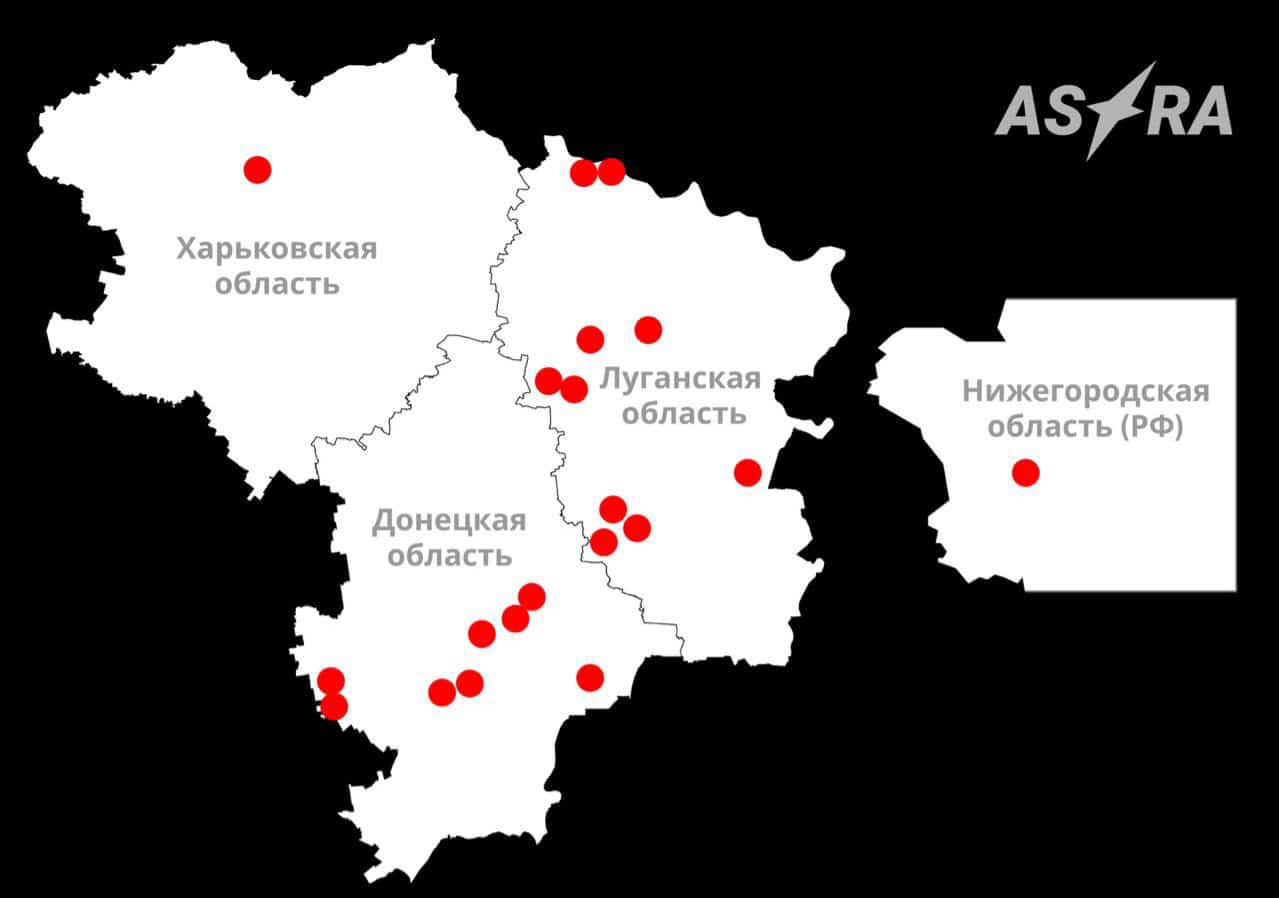

Bloggers found 20 places of torture and forcible detention of Russian army soldiers, most in the occupied territories of Ukraine
The administrators of the ASTRA Telegram channel have identified 20 places where, according to the available evidence, Russian soldiers suspected of disobeying orders and desertion were tortured and forcibly detained.
According to a post by the ASTRA Telegram channel and the related website, 18 of the places of torture and forcible detention identified by bloggers are located in the occupied parts of the Donetsk and Luhansk regions.
The 20th place identified by bloggers is the commandant’s office in occupied Donetsk at 138 Ivan Tkachenko Street. A witness, whose story the Telegram channel shared, was taken there after being detained for alleged desertion.
According to the man, who was identified as Aleksandr Barlet, 30, he was held for a week in a cell in a basement, which was designed for six people, with eight other men. According to the witness, he was taken out of the cell during the day for forced labour. A week later, during the transfer to the military unit, the witness, according to him, managed to escape.
According to the man, he started “serving” under contract in 2019, before the full-scale invasion and annexation of the occupied parts of the Donetsk and Luhansk regions by Russia. Although his contract expired in 2020, he continued to “serve.” When he was injured in March 2023 and his wife gave birth to their fourth child, he went on what ASTRA called “unofficial leave.”
Two months later, in May 2023, his parents’ home was raided during a nighttime search. The next morning, he said, the man went to the military enlistment office himself and was allegedly told that there were no documents about him or his service. However, the people who had allegedly searched the witness’s parents’ home the day before also arrived at the military enlistment office and demanded that the man go with them, and when he refused, they beat and detained him.
After escaping, the witness, according to him, went into hiding, but representatives of the military police still continue coming to his family for him. At the same time, the witness’s wife refers to a recent certificate from the Russian Investigative Committee, which states that no criminal cases have been opened against her husband and that he is not wanted as a deserter.
The witness’s lawyer, also cited by ASTRA, suggested that while the man was serving without a contract, someone was receiving his salary instead. It is unclear from the text whether the man received any money for his “service” and how it is possible that he fought without “official” status and remuneration.
The day before ASTRA published the story, it appeared in a somewhat abbreviated form and without details on the Telegram channel Mobilisation DPR Live. There, the administrators also posted, among other things, a video shot on the same day by the wife of ASTRA’s interlocutor, in which two men in civilian clothes say they are looking for a deserter, but ultimately admit that they have no documents to prove the fact of desertion.
It is clear from the published details of the story and the photos that it is the same man. The text on Mobilisation, presumably from the wife of the “deserter,” also stated that he had never had a contract with the Russian armed forces and that his contract with the “army” of the Donetsk “republic” had expired before the full-scale Russian invasion of Ukraine. The woman claimed that someone comes to her house “every week” searching for her husband.
Occupied was able to confirm via social media the identity of the man who testified to ASTRA. Other posts and comments on the Mobilisation DPR Live Telegram channel indirectly confirm that the story is true: they refer to frequent cases of persecution for desertion, including those who had “legal grounds” to leave the “service.”
Earlier, it was reported about numerous cases of missing soldiers from one Russian military unit in the occupied part of the Luhansk region.